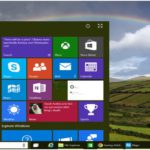It’s true that depending upon their job requirements, some people actually change their PCs a couple of times a year or more. But a majority of people generally buy a computer to last them a few years at the very least. Therefore, the decision to buy a new PC is often long and hard. With the wide variety available in the market, most people tend to get confused about what type of device would suit their needs the most.
To save you from that frustration, we have devised a list of points that you must take into account before making your final purchase.
1. Laptop or Desktop?
This decision completely depends on your budget and needs. If you are budget conscious, then buying a desktop is going to cost you a lot less. With a desktop, you will always have access to a steady terminal whenever you want to work. However, if you live an “on the go” lifestyle, then a laptop will suit you much better. They might cost more, but you can take the laptop anywhere you want. Plus, they provide all the features of a desktop, and then some, in a conveniently compact package.
2. What Operating System Should You Go With?
This decision might prove to be a little tricky as you have many great options to select from. You could always choose Windows, seeing as it is the most popular OS in the world. A great thing about Windows is that it lets its users have control over the computer. But if you don’t like to get tangled with setup options, then you might consider Mac OS, which keeps everything basic and enhances the user experience. There is also Linux, but if you actually have to Google what Linux is, then it might be a better idea to avoid it until you know more about it.
3. Choose the Right Processor
How fast do you want your PC to be? That is the question you have to ask when choosing the processor (aka the brain) for your computer. A faster processor will indeed make operations smooth and seamless, but the faster they are, the more expensive they tend to be.
4. Consider the RAM
In simple terms, RAM (Random Access Memory) is tasked with keeping data accessible when you multitask. Without RAM, the computer would have to search for data every time you begin a task. But RAM saves that time by giving the computer easy and rapid access to that data. So if you like to multitask, then consider the amount of RAM you’ll be plugging in carefully.
5. How Much Data Do You Want to Store?
Hard drives are the primary storage devices of your computer. If you prefer to keep all your data at hand and at one location, then you might want to consider buying a rather large hard drive (in terms of TBs that is). But if you prefer to rely on external storage options, then you might be okay with a smaller hard drive.
Once you’ve made up your mind about what to buy, you can call us to properly install the device for you. Our computing support technicians will be more than happy to help you with any computer related problems. You can contact us 24/7 for complete PC support and other services.

